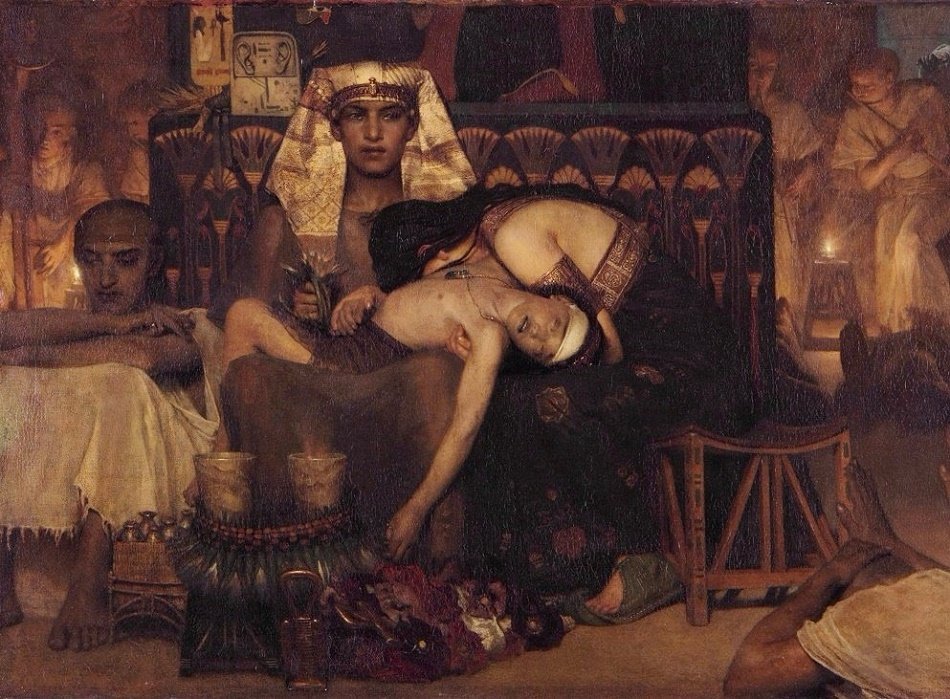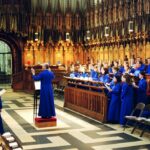Blog Post
The terrible beauty of George Frideric Handel’s Israel in Egypt
By Jonathon Van Maren
When George Frideric Handel’s Israel in Egypt premiered at the King’s Theatre in Haymarket on April 4, 1739, the audience disliked it. They disliked it so much, in fact, that when Handel put his new oratorio—the first of two he would write that consisted entirely of verses from Scripture—into the opera season, it was cancelled for lack of subscribers. Handel began to rework it, importing arias from other pieces of music, and then resurrected his masterpiece in 1756. The back-to-back thundering choruses and vivid imagery of God’s battle with Egypt on behalf of Israel soon made the oratorio one of Handel’s most beloved pieces, second only to the Messiah. “Handel understands effect better than any of us,” Mozart enviously observed. “When he chooses, he strikes like a thunderbolt.”
Last weekend, I had the privilege of attending a magnificent performance of Israel in Egypt put on by the University of Toronto Schola Cantorum, the Collegium Musicum, the Choir of the Theatre of Early Music, and the Clarion Choir, directed by Jeanne Lamon and Daniel Taylor and hosted by St. Patrick’s Shrine Church (built in 1881) in downtown Toronto. It was one of the best performances I’ve ever seen, the music tearing the audience from the tyranny of the present and at the height of several of the choruses, seeming to break free of time itself. Handel’s soaring music and Scripture’s solemn words arch over time, fusing us with past centuries until the choruses of then and now and in between form a perfect continuum and one can only listen in awe and contemplate the transcendence of true praise.
It reminded me of the first time I realized the full power of music. I was listening to a choir in the Netherlands in one of those old churches that was built for music, slouched down in a pew. Then the choir—the first large one I’d ever heard in concert—began to sing. I could almost feel the music as it passed me, reached the back wall, and slid up until it filled the space to the bursting, vibrating in the steeple as the conductor convulsed and the walls throbbed. I sat up straighter. It was like that this time, too, and brought to mind the awe I felt the time I went to hear some of Vivaldi’s newly discovered sacred music being performed in North America for the first time. As Peter Kreeft once asked of those discussing what praise and worship music should sound like: Is this the music of your peers, or the music of the spheres? The ability of sacred music to touch the soul is why even Richard Dawkins, one of the Scroogiest of today’s atheists, has admitted to bellowing Christmas carols each advent season.
It is incredibly difficult to review music with prose, but I’ll attempt to offer a few observations. The third chorus was chilling: “He spake the word, and there came all manner of flies and lice in all quarters. He spake; and the locusts came without number, and devoured the fruits of the ground.” As the voices rose to the highest heights, there was something about the contrast of the female voices beautifully lilting the word “locusts” over and over again which gave me a chill; the feminine contrasted with the ugliness of a plague of insects sent shivers down my spine. The double chorus, “He gave them hailstones for rain; fire mingled with the hail ran along upon the ground” with the repetition of He gave them hailstones! and the thudding of drums, like the striking of hail, was simply magnificent. When the singing stopped abruptly after the line He rebuked the Red Sea, the silence rolled through the cathedral like soundless thunder.
The most viscerally powerful duet could be palpably felt, and the soloists emanated the strength of what they sang: The Lord is a man of war: The Lord is His name. Pharaoh’s chariots and his host hath He cast into the sea; his chosen captains also are drowned in the Red Sea. And when the female voices chorused triumphantly of the Lord’s victory, I thought that the relief and joy in the music must have mirrored the celebration of Miriam and the Israelite women as their despair and terror turned to wonder at the Lord’s miraculous ways: Thy right hand, O Lord, is become glorious in power; Thy right hand, O Lord, hath dashed in pieces the enemy. And in the greatness of Thine excellency Thou hast overthrown them that rose up against Thee. Thou sentest forth Thy wrath, which consumed them as stubble.
When the choirs fell silent after a full evening heavy with meaning, the voices died away to the echoes of the eternal. This was real music, the music of the spheres. The audience sat for a moment, and then began to applaud. The standing ovation carried on until the singers and musicians finally began to file out of the church. Hundreds of years after Handel put the story of Israel’s captivity in Egypt to music, the power of the piece has only grown, contrasted as it now is by the tawdry counterfeit pop that passes for “praise and worship” today. In an age of cheap modernity, Handel’s oratorios soar to ever-greater heights.








